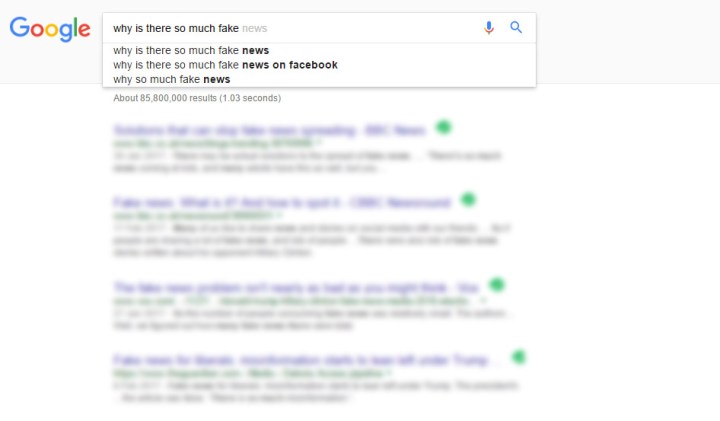
Google launched Crosscheck in France earlier this year to go after fake news on its platform, but it never planned to stop there. The latest changes to the algorithm — the specifics of which Google has always been guarded about — should push misleading or deliberately offensive material further down the rankings.
In an example of what it hopes this will help avoid, Google highlighted that last year a problem with the rankings caused a search for “did the Holocaust happen?” to send searchers to a neo-Nazi website (as per TechCrunch).
On top of changes behind the scenes, Google has also added deeper feedback options for searchers. Should anyone stumble across content which they feel is misleading, or not relevant to their query, they will be able to provide feedback with more detail. Alongside the options for stating that content was sexually explicit, offensive, or hateful, Google is also looking for positive responses when its algorithm gets things right.
For its more dedicated users, Google has new guidelines for Search Quality Valuators too. These give users a much more detailed idea of what it is that Google wants people to find when they make searches using the engine. Although that feedback won’t directly affect rankings to avoid abuse of the system, it will cause it to look at its algorithm and potentially tweak how it works.
It highlights specifically hoaxes and unfounded conspiracy theories as part of what it wants people to look out for.
To distance itself a little from some of the results that have appeared, too, especially with autocomplete, Google has taken a step to add some transparency to its search operation. Google’s autocomplete policy is now publicly available, so anyone wondering what its stance on certain automated search queries are can now find out in one quick-to-read document.
Editors' Recommendations
- Google Earth updates cool Timelapse feature with new imagery
- This new Google Chrome feature may boost your search history
- Google Maps is adding new shopping tools for the holiday season
- Google’s 3-year update promise for the Pixel 6 is disappointing but predictable
- Google now wants you to scroll forever on its Search for mobile




